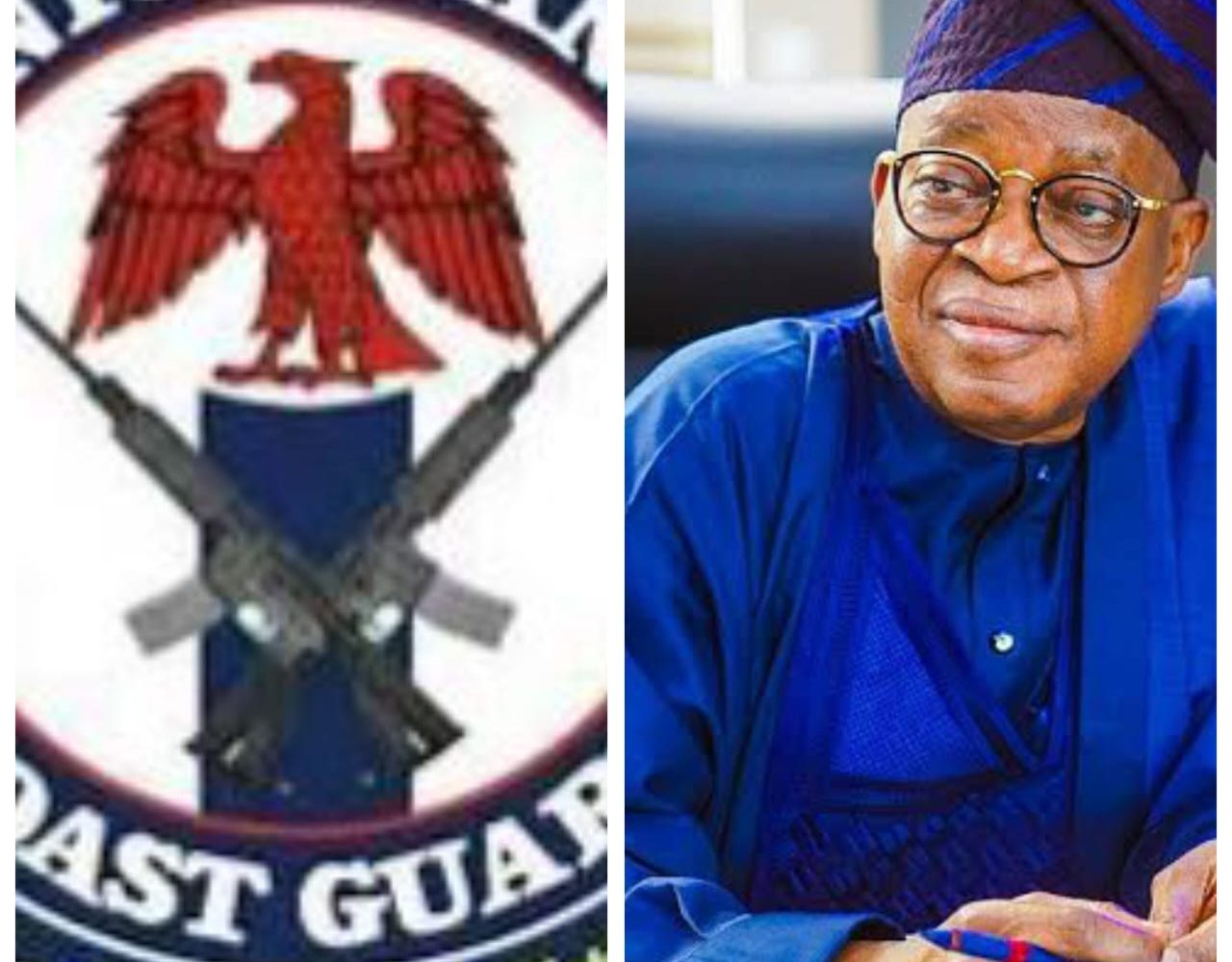By Barnabas Esiet.
In a significant development, stakeholders and experts in Nigeria’s maritime sector have expressed overwhelming support for the Coast Guard Bill currently before the National Assembly.
The proposed legislation aims to establish a dedicated coast guard responsible for securing Nigeria’s maritime zones, and many have hailed it as a crucial step in bolstering the federal government’s efforts to secure the maritime space.
During a public hearing convened by the Senate Committee on Marine Transport, stakeholders presented varying views on the bill, with the majority endorsing the creation of the National Coast Guard.
Notable supporters of the bill include Dr. Olisa Agbakoba, Dr. Ade Dosunmu, former Director General of NIMASA; Jean Anishere, representing the Nigeria Bar Association; and Rear Admiral Ekwerre Ekwerre (Rtd), former Flag Officer Commanding the Training Command of the Nigerian Navy.
Dr. Agbakoba described the bill as timely but emphasized the need for professional input to address certain concerns within the draft. He expressed his willingness to assist in this process.
Dr. Dosunmu offered full support for the bill, suggesting that the Nigerian Navy should focus on blue-water operations and national defense against external threats, while the Coast Guard should address maritime crimes and incidents along the nation’s extensive 855-kilometer coastline using more adaptable resources.
Dr. Dosunmu referenced successful maritime nations such as India, Singapore, China, the United States, Japan, Egypt, Morocco, and the United Arab Emirates, all of which have well-defined roles for both the Navy and Coast Guard.
However, he cautioned against assigning functions such as hydrography and oceanographic research to the Coast Guard, as these responsibilities are already managed by other agencies, and incorporating them could divert focus from the Coast Guard’s primary mission.
Jean Anishere articulated her support for the bill while highlighting certain ambiguities that must be resolved before it can be enacted.
She pointed out specific provisions in the bill that require clarification and refinement.
Retired Rear Admiral Ekwerre Ekwerre addressed concerns raised by the Nigerian Navy and advocated that the Navy should concentrate on defense, showcasing military strength, and conducting diplomatic operations within territorial waters and the Exclusive Economic Zone (EEZ).
He asserted that the Coast Guard should be responsible for enforcing maritime laws in the nation’s inland waters.
While the majority of stakeholders endorsed the establishment of the Nigeria Coast Guard, they also called for careful consideration of the bill’s provisions to ensure clarity and effectiveness in its implementation.
The Nigerian Coast Guard Bill has already passed its second reading in the Senate, marking significant progress towards bolstering maritime security in the country.
The proposed legislation aims to safeguard Nigeria’s maritime interests and uphold regional coastal security by aligning with international standards and norms for maritime security.
The Coast Guard would enforce relevant laws within Nigeria’s maritime zones, helping to preserve lives and property and ensuring regulatory compliance within the sector.
This initiative supports the federal government’s broader economic development agenda, as securing the maritime environment can unlock numerous opportunities essential to national diversification efforts.
As the bill progresses, it is essential that stakeholders continue to engage in constructive dialogue to ensure that the final legislation is effective, efficient, and aligns with the country’s maritime security needs.
With the overwhelming support from stakeholders, the Nigerian Coast Guard Bill is poised to become a crucial instrument in enhancing the country’s maritime security and promoting economic growth.









Comment here